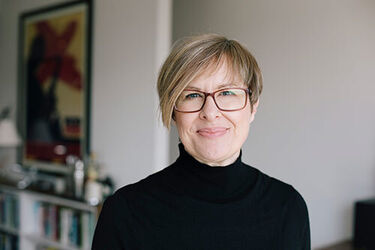
Hard to spot and easy to excuse, economic abuse of women in Australia has long been a silent problem. But experts like Rebecca Glenn are fighting to change this – and awareness is building. Here, we look at the signs of economic abuse, how it impacts women’s health and where to get support.
It can leave you drowning in debt, barred from your bank accounts and out of work. And for many, it continues long after an abusive relationship has ended.
Economic abuse is a type of domestic and family violence that affects one in 6 women in Australia – more than double the number of men. It occurs when a person controls, exploits or sabotages someone's financial freedom.
According to Rebecca Glenn, Founder and CEO of the Centre for Women’s Economic Safety (CWES), “its impact is huge and long-lasting”.

Rebecca (pictured) founded CWES in 2020 after becoming painfully aware that support services were lacking.
“I used to work in financial literacy and wellbeing ... then I went through a process with a dear friend of mine who was experiencing economic abuse,” she says.
“I was quite distressed about how little support and understanding there was at the time.”
CWES is a registered charity designed to raise awareness of economic abuse, reduce its impact and help the women experiencing it.
Although awareness is growing and organisations like CWES are making a difference, Rebecca says there is still a long way to go.
One of the many problems, she says, is that economic abuse can be hard to spot and easy to excuse.
“It often is misunderstood, tolerated and normalised because people often don't understand the broader context of some of the behaviours.”
Economic abuse involves actions or behaviours that happen repeatedly, and can include an intimate partner or ex-partner:
“These are all behaviours that, depending on the context, are reason for concern,” says Rebecca.
But what if you suspect the economic abuse is happening to a friend, colleague or family member? What are the red flags?
At CWES, Rebecca and her team asked victim-survivors to think about the signs other people may have noticed when the economic abuse was taking place. She says the list of signs included the victim:
It’s important to note that abuse might not be at play here. A friend who suddenly declines social activities might in fact be feeling cost-of-living pressures, for example. But, Rebecca says the above signs are “good indicators”.
If you are concerned, her advice is to “take it seriously” but “tread carefully”.
“It’s about expressing your concern but following their lead.”
Economic abuse can have devastating effects on a woman’s health, from limiting her independence to causing poverty.
“It can restrict your ability to look after yourself,” says Rebecca, who says food, medication, seeing friends and visiting the doctor can become unaffordable.
“Domestic and family violence also impacts on emotional and psychological wellbeing,” she says.
“There's a real sense of shame tied to it.” But, she adds: “It's not your fault and there is help available.”
If you or someone you know is experiencing economic abuse, it’s important to get help. Visit the following CWES links for information and support.
All reasonable steps have been taken to ensure the information created by Jean Hailes Foundation, and published on this website is accurate as at the time of its creation.
© 2025 Jean Hailes Foundation. All rights reserved. This publication may not be reproduced in whole or in part by any means without written permission of the copyright owner. Contact: licensing@jeanhailes.org.au